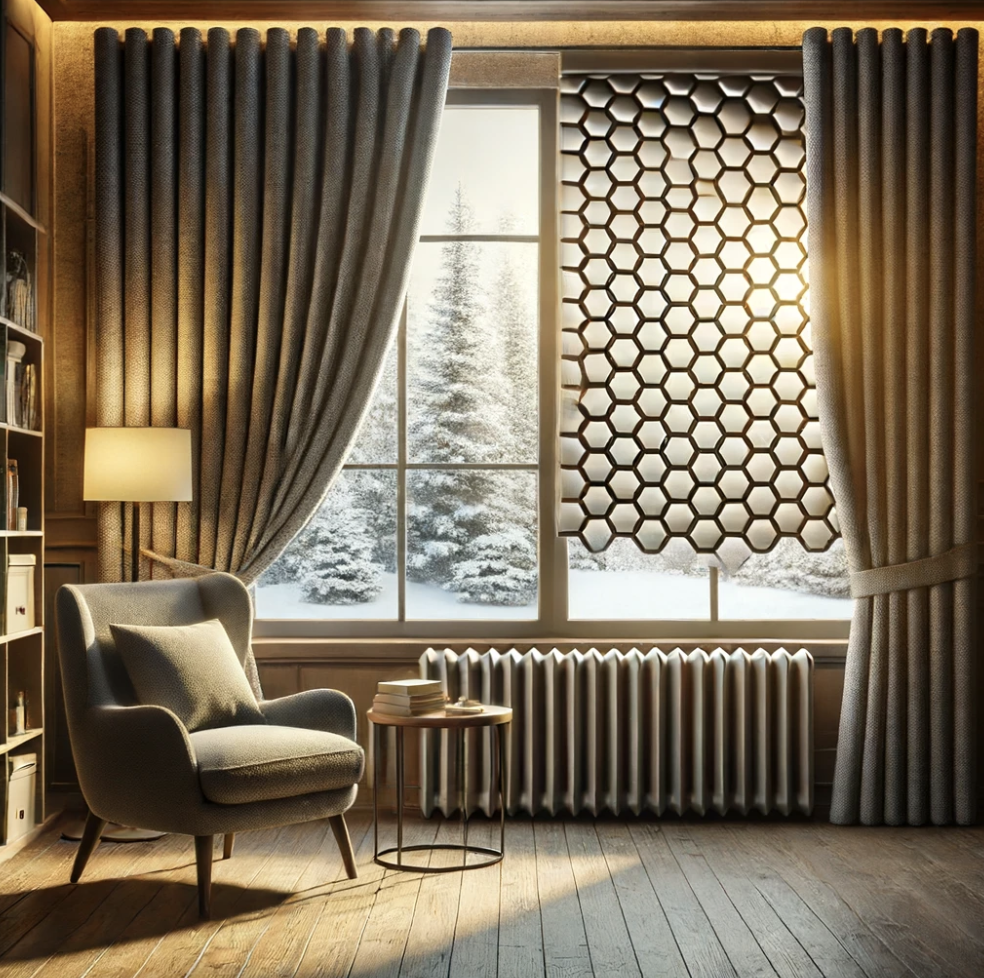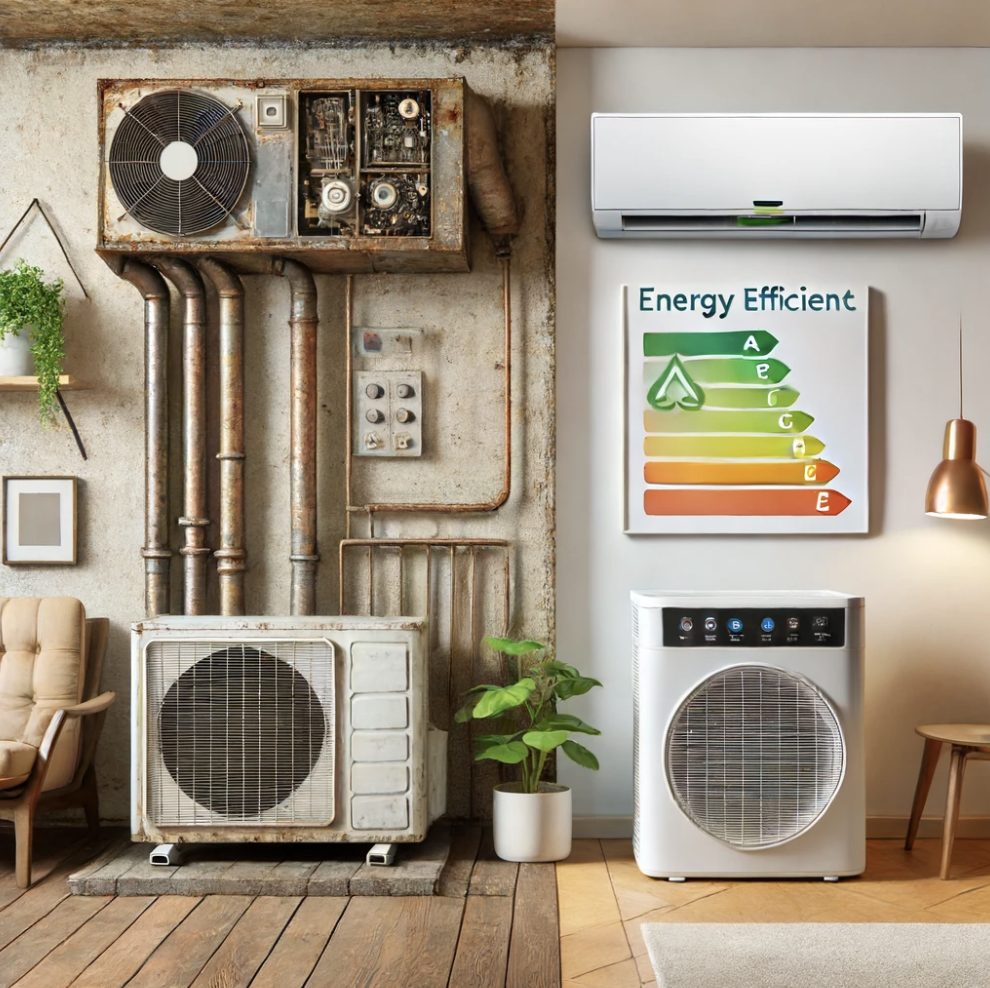Energy conservation is essential for reducing costs and environmental impact. Fortunately, there are practical strategies to save energy while maintaining comfort. Here are some tips for energy conservation that will keep your home comfortable and reduce your energy bills.
Optimise Your Windows
1. Windows Thermal Insulation
Improving your windows thermal insulation is a highly effective way to conserve energy. Properly insulated windows can reduce energy loss, keeping your home warmer in winter and cooler in summer. Consider installing double glazing or triple glazing windows, which have multiple panes of glass with air or gas between them to improve insulation.
2. Prevent Heat Loss Through Windows

To prevent heat loss through windows, use heavy curtains or thermal blinds. Draw them at night or during cold weather to keep the warmth in and the cold out. Make sure the curtains or blinds fit snugly to avoid drafts. Sash windows can be particularly prone to drafts, so consider adding weatherstripping to these as well as regular windows.
3. How to Insulate Windows
If replacing your windows is not an option, there are ways to insulate them effectively. How to insulate windows on a budget includes using window film, weatherstripping, and caulking. Window film can be applied to the glass to reduce heat transfer, while weatherstripping and caulking can seal any gaps around the window frame to stop drafts. For single pane windows, these methods can make a significant difference.
Enhance Home Insulation
4. Home Insulation
Proper home insulation is crucial for maintaining a comfortable indoor temperature year-round. Insulating your walls, attic, and floors can prevent heat from escaping in the winter and keep the cool air in during the summer. This reduces the need for heating and cooling, saving energy and money.
5. Home Insulation Near Me
If you’re unsure about the insulation status of your home, search for home insulation near me to find local professionals who can assess your home and recommend the best insulation solutions. They can also help with the installation, making your home as energy-efficient as possible.
Efficient Heating and Cooling
6. Upgrade Your HVAC System
An outdated HVAC system can be a major energy hog. Consider upgrading to a more energy-efficient model. Look for systems with a high SEER (Seasonal Energy Efficiency Ratio) rating for cooling and a high AFUE (Annual Fuel Utilisation Efficiency) rating for heating.

7. Regular Maintenance
Regular maintenance of your HVAC system ensures it operates efficiently. Change filters regularly, clean the ducts, and schedule annual check-ups with a professional to keep your system running smoothly and efficiently.
8. Programmable Thermostat
A programmable thermostat can help you save energy by adjusting the temperature based on your schedule. Lower the heat when you’re asleep or away from home, and program it to warm up just before you wake up or return home. This reduces energy use without sacrificing comfort.
Smart Lighting Solutions
9. Use LED Bulbs
Switching to LED bulbs is one of the easiest ways to conserve energy. LED bulbs use significantly less electricity than traditional incandescent bulbs and last much longer. This reduces energy consumption and replacement costs.
10. Smart Lighting Controls
Consider installing smart lighting controls, such as motion sensors and timers. These can automatically turn off lights when they’re not needed, reducing energy waste.
Water Heating Efficiency
11. Insulate Your Water Heater
Just like your home, your water heater can benefit from insulation. Adding a water heater blanket can reduce heat loss and improve efficiency, saving energy and money.
12. Lower Water Heater Temperature
Lowering the temperature on your water heater can also save energy. Most water heaters are set to 140 degrees Fahrenheit by default, but lowering it to 120 degrees can reduce energy use without sacrificing comfort.
Energy-Efficient Appliances
13. Upgrade to Energy-Efficient Appliances
When it’s time to replace household appliances, choose energy-efficient models. Look for the ENERGY STAR label, which indicates that the appliance meets strict energy efficiency guidelines.
14. Use Appliances Wisely
Even energy-efficient appliances can waste energy if not used properly. Run full loads in your dishwasher and washing machine, and avoid using the dryer when possible. Air drying clothes and dishes can significantly reduce energy consumption.
Seal and Insulate Ductwork
15. Insulate Ductwork
Ductwork that runs through unheated spaces like attics and crawl spaces should be insulated. This prevents energy loss and ensures that your HVAC system is delivering air at the right temperature.
16. Seal Leaks
Check for leaks in your ductwork and seal them with mastic sealant or metal tape. Leaky ducts can waste a significant amount of energy by allowing conditioned air to escape.
Renewable Energy Options
17. Solar Panels
Consider investing in solar panels for your home. While the initial cost can be high, the long-term savings on energy bills and the environmental benefits make it a worthwhile investment. Solar panels can provide a significant portion of your home’s energy needs, reducing reliance on non-renewable energy sources.
18. Solar Water Heaters
Solar water heaters are another great way to conserve energy. They use the sun’s energy to heat water, reducing the need for electricity or gas.
Behavioural Changes
19. Be Mindful of Energy Use
Simple behavioural changes can also lead to significant energy savings. Turn off lights when you leave a room, unplug electronics when they’re not in use, and dress appropriately for the season to reduce reliance on heating and cooling.
20. Educate Your Household
Make sure everyone in your household knows the importance of energy conservation. Encourage family members to adopt energy-saving habits and make it a team effort to reduce energy consumption.
Wrapping Up
By implementing these tips, you can conserve energy without sacrificing comfort. From improving window insulation and enhancing home insulation to upgrading appliances and adopting smart habits, there are numerous ways to make your home more energy-efficient. Start with small changes and gradually make more significant improvements to see the best results in your energy costs and overall thermal comfort.
Efficient windows with good thermal insulation can greatly influence the heat flow in your home, maintaining a comfortable environment throughout the year. For those with single pane windows, adding secondary glazing can provide an additional layer of insulation, enhancing thermal comfort and reducing energy costs. Consider updating to modern windows to optimise energy efficiency and maintain a cosy home atmosphere.

